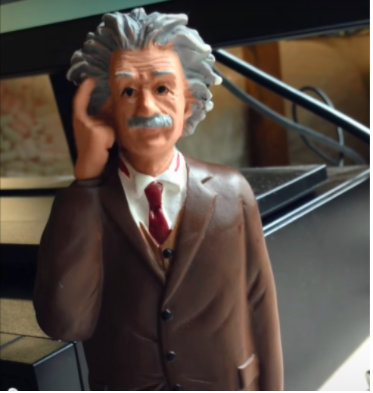
Reinvention as a Subversive Activity
I'd wake up to the sound of waves in the Outer Sunset. Ride my bike past the eastbound N. Judah bus heading inland. Whiz crosstown to that bright red door in SoMa. That dreadful, joyful, awful, inspiring red door.
Every day behind that red door, five of us wandering souls congregated. We dodged the morning glory of San Francisco’s shit and piss to enter the path of mastery.
One hour of instruction. A full day of building subsets of various popular technologies, from scratch.
Calm practice.
We were accustomed to frantic practice - college taught us to treat knowledge as something disembodied from us, as if it were something to drink up, consume, cram. We were thirsty, so our college professors tried to quench us with dusty slides on overhead projectors.
I struggled with calm practice. It didn’t let me hide. Oz and Myles insisted that there is no knowledge without fundamental understanding. As we wrote our programs, Oz would ask us:
“Let me see your understanding.”
So we had to show our work. Our hand scribbles, our test cases, our questions, our explanations, our exposition, our diagrams.
Some days, my monkey mind hated this relentless pursuit of understanding. I would grow frustrated by my lack of skills. I’d hack together a program that barely worked.
Oz had a sixth sense for this. On this day, noticing my frustration, he came over to me and placed an Albert Einstein bobblehead next to my laptop.

The calm yet unending repetition of Albert’s finger touching forehead reminded me: “Just think. It’s all in there.”
I wish I could say I was enlightened on the spot. Instead I silently told Oz to go fuck himself, and he chuckled and walked away.
Old School, New School
This was my experience as part of the first experimental cohort of the Bradfield School of Computer Science. In 6 months of studying with Oz and Myles, I learned more than I ever had from regurgitating textbook concepts for exams.
My time at Bradfield set me on a path to discover education continuously from the experts all around me. That sounds so obvious, but I always thought I needed permission to learn. I thought education was something static that I acquired once and never needed to think about again.
What I didn't understand: our economy was built for static expertise. Go to college, gain credentials, and you’ll be set for the rest of your life. Take a course or a workshop, and ride the certification train to a raise or promotion.
Our world is anything but static. Technology, business innovation, and social movements have changed the landscape in a radical way. Your economics and political science degree doesn’t prepare you for what you need to know in the world. Even your technical degree or advanced credential doesn’t quite prepare you.
We are by and large using Old World tactics to navigate the New World. The rules have changed.
Old World: unflagging economic growth, rapid job creation, government-subsidized education, big companies offering long careers, ordinary Americans taking out low-interest loans from local banks.
New World: rapid digital automation of jobs and mass layoffs, high education costs, stagnant economic growth, ordinary Americans mired in all sorts of debt.
The existing institutions gave us the paternalistic comfort that they understood what was going on. Only they could teach you what you need to learn to succeed in the world.
These institutions no longer play that role. We don’t trust these institutions as much as we used to. This is a healthy stance.
Old School: packaged, exam-based, lecturer-led, synchronous, passive and isolated, credential-oriented.
New School: a la carte, project-based, practitioner-led, asynchronous, immersive and collaborative, accomplishment-oriented.
Legacy institutions are now scrambling to keep up with new forms of education that are emerging around us. These new forms are bootcamps, intensive trade schools, online courses provided directly by masters of the craft, live screencasts and videos.
Old Mind: passively receive instruction, memorize concepts, take lecture notes, cram for the exam, and receive a grade not directly tied to accomplishment.
New Mind: actively engage with instruction, play and reconfigure concepts, shadow the practitioner, and gauge understanding through direct accomplishment.
This is all really exciting stuff. The New Mind is going to be the biggest differentiator in the modern world for years to come. The New Mind learns differently. Yet we are still entering these new education forms with the Old Mind.
Old Mind, New Mind
You see, the New School requires the New Mind. The New Mind is very much like the mind of our heroes of antiquity, the Montaignes and Spinozas and Galileos, the autodidacts fashioning their own educations through apprenticeship and self-discovery.
The new is the old made fashionable again. The old had never left, it had just gone into hiding, waiting for a worthy society to rediscover it. We are a worthy society, and we have rediscovered The New Mind.
It’s the teacher pointing at the bobblehead.
It’s the bobblehead’s finger pointing at its head.
It’s the whole situation reminding you that you have all the tools to reinvent yourself. And reinvention is how you subvert The Old Mind. This subversion reveals The New Mind that you possessed all along.
July 2020